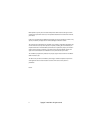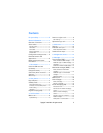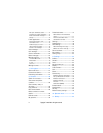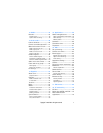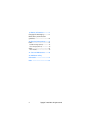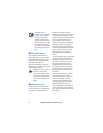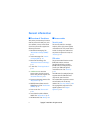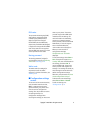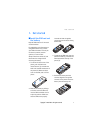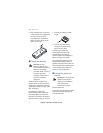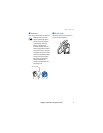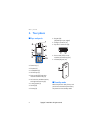General information
■ Overview of functions
Your phone provides many functions
that are practical for daily use, such
as a calendar, a clock, and an alarm
clock. Your phone also supports the
following functions:
• Multimedia messaging. See
”Multimedia messages (MMS)”
p. 15.
• Instant messages. See ”Instant
messaging (IM)” p. 18.
• Bluetooth technology. See
”Bluetooth wireless technology”
p. 37.
• E-mail. See ”E-mail application”
p. 22.
• Audible alerts to check the
battery status and the network
status using acoustic signals. See
”Personal shortcuts” p. 35.
• Presence-enhanced contacts. See
”My presence” p. 30.
• EDGE (Enhanced Data rates for
GSM Evolution). See ”Packet data
(EGPRS)” p. 39.
• Push to talk. See ”Push to talk”
p. 46.
• Java 2 Platform, Micro Edition,
J2ME®. See ”Applications” p. 59.
• XHTML browser. See ”Web” p. 62.
■ Access codes
Security code
The security code (5 to 10 digits)
helps to protect your phone against
unauthorized use. The preset code is
12345. To change the code and set
the phone to request the code, see
”Security” p. 42.
PIN codes
The personal identification number
(PIN) code and the universal
personal identification number
(UPIN) code (4 to 8 digits) help to
protect your SIM card against
unauthorized use. See ”Security”
p. 42.
The PIN2 code (4 to 8 digits) may be
supplied with the SIM card and is
required for some functions.
The module PIN is required to access
the information in the security
module. See ”Security module” p. 66.
The signing PIN is required for the
digital signature. See ”Digital
signature” p. 68.
x Copyright
©
2005 Nokia. All rights reserved.



